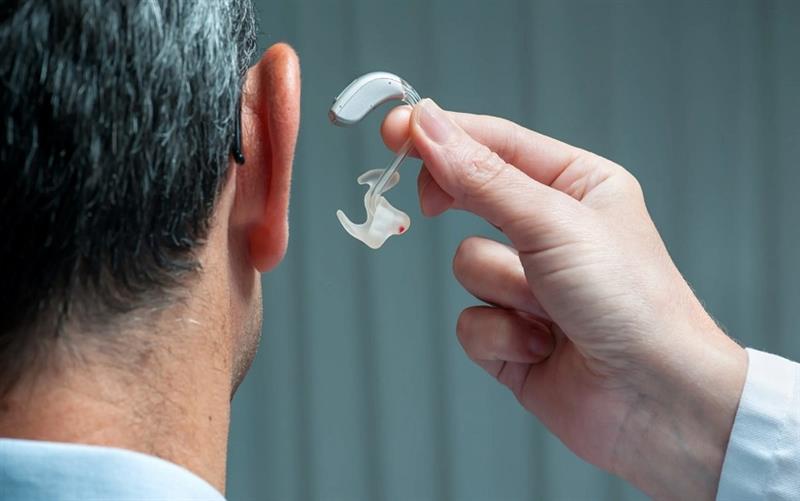
While research supporting the direct role of hearing loss treatment in dementia prevention is still evolving, several observational studies and clinical trials have demonstrated associations between untreated hearing loss and cognitive decline, as well as potential benefits of hearing loss interventions on cognitive function. However, further research is needed to better understand the causal mechanisms and long-term effects of hearing loss treatment on dementia risk reduction. Nonetheless, promoting early detection and management of hearing loss remains an important aspect of comprehensive strategies for maintaining brain health and reducing the burden of dementia.
The potential link between hearing loss treatment and dementia prevention offers promising avenues for improving cognitive health in aging populations. While the exact mechanisms underlying this relationship are still being explored, addressing hearing impairment through interventions such as hearing aids or cochlear implants may have several potential benefits in mitigating cognitive decline and reducing the risk of dementia.
Hearing loss can stem from a variety of factors, both environmental and genetic. Here are some common reasons behind hearing loss:
1. Age-related hearing loss (presbycusis):
This type of hearing loss occurs gradually as a person ages. It's one of the most common forms of hearing impairment and typically affects both ears equally. Age-related changes in the inner ear, including damage to hair cells and changes in blood flow, contribute to this condition.
2. Noise-induced hearing loss (NIHL):
Exposure to loud sounds, whether occupational (such as machinery, construction, or firearms) or recreational (such as concerts or listening to music at high volumes), can damage the delicate structures of the inner ear. Prolonged or repeated exposure to loud noise can lead to permanent hearing loss.
3. Genetic factors:
Some types of hearing loss are hereditary and can be passed down through families. Genetic mutations can affect the development or function of the inner ear, leading to congenital hearing loss or hearing loss that manifests later in life.
4. Ototoxic medications:
Certain medications, including some antibiotics, chemotherapy drugs, and high doses of aspirin, can damage the hair cells in the inner ear and cause hearing loss. This type of hearing loss is known as ototoxicity.
5. Traumatic injury:
Head injuries or trauma to the ear can damage the structures of the auditory system, resulting in temporary or permanent hearing loss.
6. Infections:
Infections such as otitis media (middle ear infection) or otitis externa (swimmer's ear) can cause inflammation and fluid buildup in the ear, leading to temporary hearing loss. Severe or untreated infections may result in permanent damage to the ear structures.
7. Medical conditions:
Certain medical conditions, including diabetes, high blood pressure, cardiovascular disease, and autoimmune disorders, can affect blood flow or nerve function in the inner ear, contributing to hearing loss.
Potential Benefits of Reducing the Risk of Dementia
The potential role of hearing loss treatment in dementia prevention is an area of active research and discussion. While the exact mechanisms underlying the relationship between hearing loss and dementia are still being elucidated, addressing hearing impairment through various treatments may have several potential benefits in mitigating cognitive decline and reducing the risk of dementia:
1. Improved communication and social engagement:
Hearing loss can lead to social isolation and communication difficulties, which are associated with cognitive decline and dementia risk. Treating hearing loss with hearing aids or other assistive devices can enhance communication abilities, facilitate social interactions, and reduce feelings of loneliness and isolation.
2. Reduced cognitive load:
Struggling to hear and understand speech due to hearing loss can place a significant cognitive load on the brain, which may contribute to cognitive decline over time. By improving auditory input through hearing aids or cochlear implants, individuals with hearing loss may experience reduced cognitive effort during communication tasks, potentially preserving cognitive function.
3. Maintenance of brain plasticity:
Adequate auditory stimulation is important for maintaining brain plasticity and cognitive function. Addressing hearing loss through interventions that restore auditory input, such as hearing aids, may help preserve neural pathways involved in auditory processing and cognitive function, thereby reducing the risk of cognitive decline and dementia.
4. Prevention of sensory deprivation:
Untreated hearing loss can lead to sensory deprivation, whereby the brain receives reduced auditory input over time. This sensory deprivation may contribute to neurodegenerative processes associated with dementia. By treating hearing loss and restoring auditory input, individuals may help prevent or delay the onset of cognitive decline associated with sensory deprivation.
5. Enhanced quality of life:
Addressing hearing loss can improve overall quality of life by enabling individuals to engage more fully in social, occupational, and recreational activities. By promoting active engagement and participation in stimulating environments, hearing loss treatment may contribute to cognitive reserve and resilience against dementia.
It's ideal to keep yourself as educated with your hearing aids and a new breakthrough in the technology. Ask your query via Book an Appointment today. For more information visit https://hearing.careinc.ca or you can call us today at (403)605-6300